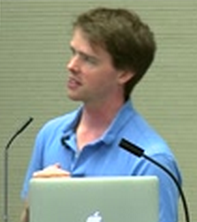CppCon 2014 cppreference.com: documenting C++ one edit at a time--Nate Kohl
 Have you registered for CppCon 2015 in September? Don’t delay – Early Bird registration is open now.
Have you registered for CppCon 2015 in September? Don’t delay – Early Bird registration is open now.
While we wait for this year’s event, we’re featuring videos of some of the 100+ talks from CppCon 2014 for you to enjoy. Here is today’s feature:
cppreference.com: documenting C++ one edit at a time
by Nate Kohl
Summary of the talk:
How do you convert hundreds of pages of C++ standardese into a resource that is accessible to software engineers around the world? This talk will describe the process of building a community-run website that documents all of the nooks and dark corners of the C++ programming language. I'll look back at the history of how C++ was defined, cover the current state of documentation, examine the pros and cons of running a fairly high-profile publicly-editable wiki, and try to guess at what the future holds.

 More rapid-fire “now write this using lambdas” problem-solution drill with Sumant Tambe:
More rapid-fire “now write this using lambdas” problem-solution drill with Sumant Tambe: Have you registered for CppCon 2015 in September? Don’t delay –
Have you registered for CppCon 2015 in September? Don’t delay –